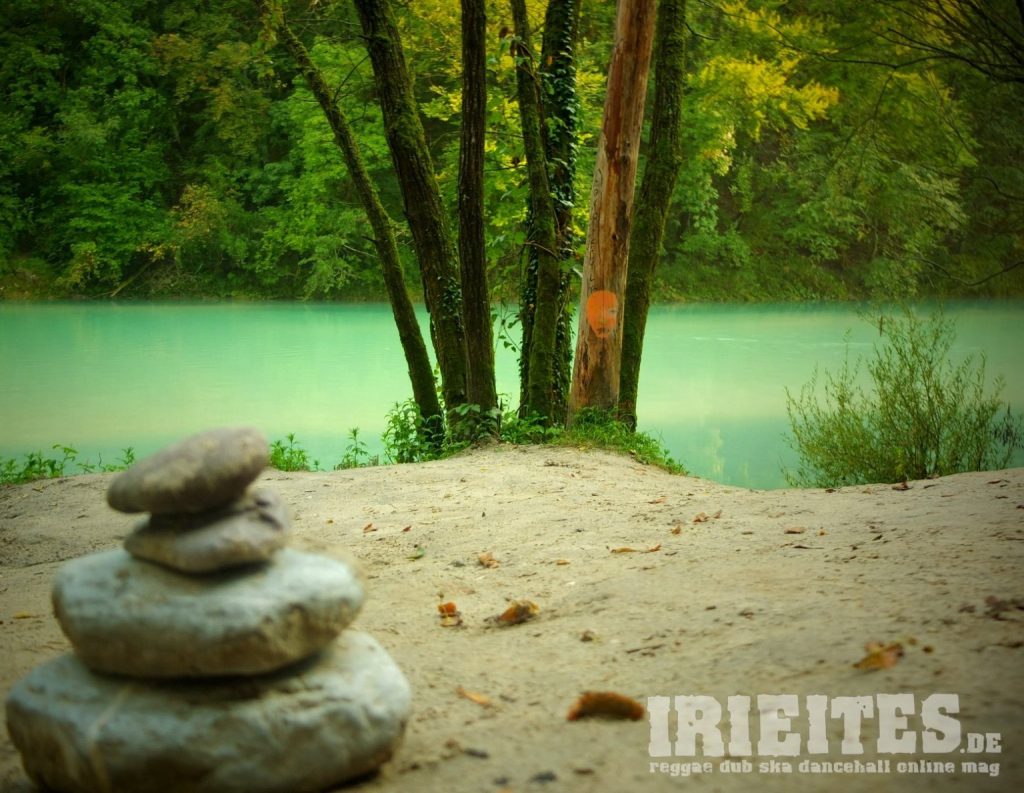
A foursome interview about the impact of Reggae music on environmental protection
Not many of you might know that, next to my activities as reggae music journalist, I am also a PostDoc researcher at the University of Hamburg. In this capacity, I have just finished an article entitled “The Contribution of Reggae Music to Environmental Awareness and Well-being: an Analysis of Lyrics and their Impact on Listeners”, which is the result of an extensive three-months research. The article analyzes the lyrics of four songs that thematise ecological subjects and tries to determine the influence these songs have on their listeners by looking at YouTube-comments and asking fans for their opinion in a survey. The four songs studied are:
- “Le Monde Est Chaud” by Tiken Jah Fakoly
- “Between The Lines” by Marcus Gad
- “Step Lightly” by Mike Love
- “Mama” by Sam Garrett
Additionally, I have interviewed the four artists about the impact their music has, and since space restrictions prevent me from printing the full interviews in the article, I decided to upload them here, as the words of wisdom shared by these extraordinary humans should not be lost. As you will see, the questions are almost the same for each artist, but the answers are unique – enjoy reading!
Interview 1: Tiken Jah Fakoly
What do you think attracts people to your music?
I think what attracts people to my music is the message. The message, and also the traditional instruments. Reggae is a music of fight, of raising consciousness and it is true that today, Africa is in a process of awakening, of democratizing, of liberation. So I think when I sing those things people find themselves in my message.
What impact does your music have on people and communities?
The impact that my music has on people and communities is very real. Because I’m singing for 25 years now, today many people say, “Yes, we have listened to your music since some years, but we didn’t know really what you were saying, we didn’t see the sense, but today we have understood everything, we understood what you mean.” So I hear this everywhere. Some even tell me that I am a prophet because I was saying things that came true today. So, this is some of the impact my music has on people. Concerning the communities, well, I talk about unity, about gathering, so I think that there is also a real impact that I see today.
How would you describe your relationship with nature? And how do you express it in your music?
My relationship with nature is like that of most reggae people. We are very close to nature, I respect very much the animals and the trees, since I think that animals breathe like we do, they do everything we do, just that they are not as intelligent. The most difficult days for me are the days of Tabaski [Aid el Kébir], where many sheep are slaughtered in the whole world, I think this is a sheep genocide. So… my relationship with nature is very special. Also, when I’m in nature, I am more inspired, the songs just come to me, so this whole relationship with nature, with the animals, it does me good.
Were there any direct reactions to your song “Le Monde Est Chaud”?
Well, I didn’t have any direct reactions from people, but I know that any manifestation for the protection of the planet against global warming is important. In any case, the people play my music and they know that me too I fight against global warming, so it allows those who listen to my music to intervene for nature.
In your opinion, which role does music play in activism for social justice or environmental protection?
For me, the music is the musical branch of the civil society. The people fight so that things change, and we also we do the same thing with reggae. We sensibilise, we lift the consciousness, etc., so reggae music for me is the musical branch of civil society, it is fighting for change.
Do you see your music as performative or participatory (or both)?
I think my music is participative. It contributes to lifting the consciousness, it participates in galvanizing the people, to fight against injustice and inequalities etc.
Which aspects of Rastafarianism could serve as a model for a better future for our planet?
I think it is in the model of Bob Marley that Rastafarianism could contribute to a better future, who was a mix who considered himself neither black nor white, who considered himself human. I think that Bob Marley is the prophet of reggae, he is also the spokesperson of Rastafari, because he introduced it to the world. So, I think it’s the model of Bob Marley that can serve as an example for a better world.
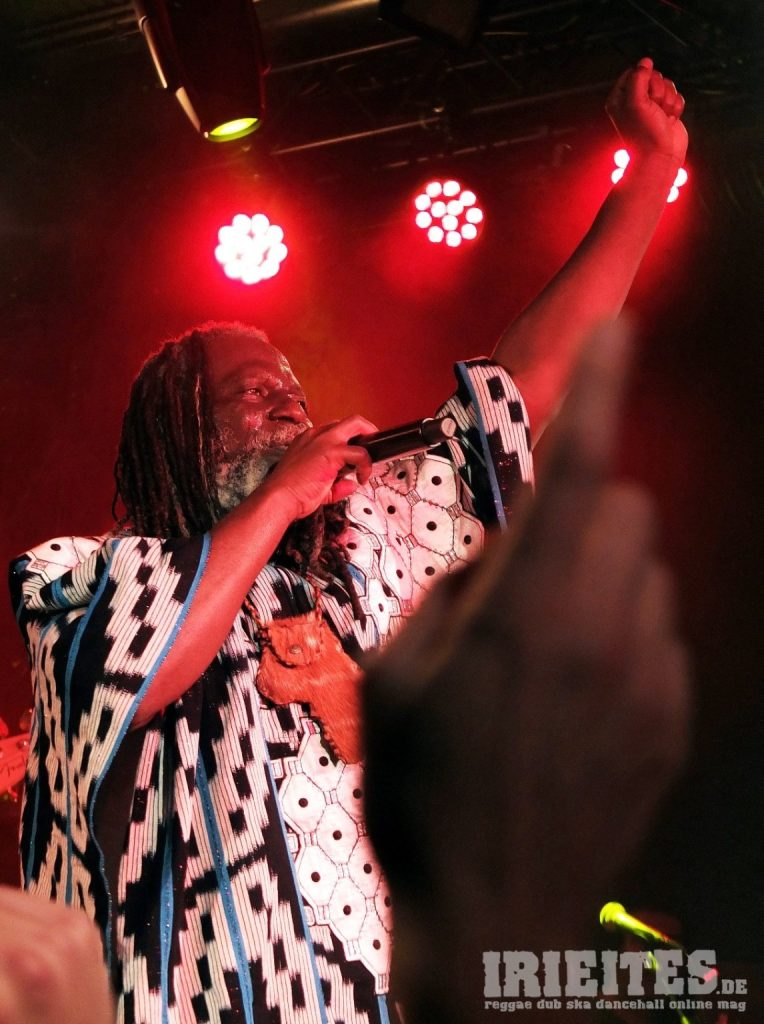
Interview 2: Marcus Gad
What do you think attracts people to your music?
I think most of all it’s like a heart feeling. You know, there is this unexplainable part of music where people feel touched by the music without being able to explain why, so I think most of all it’s like this feeling in the music. That’s the way we do music too, you know, we try not to put too many concepts on it and we really do the music that we love, not specially trying to fit in today’s trends. I think for a big part of our public, this is what they like, it’s this authenticity in a time where there is not so much authenticity in the music anymore.
Can you give us an example when people told you what impact your music had on them or on their lives, on their situations?
Well, I think it happens a lot with people from our crowd because there is lots of hope in the music. I think there are lots of people today who feel maybe left out from the modern world, like there is no space for them, and a lot of them they feel really touched by the music. It’s hard for me to give like one special example, but I know there are lots of people who are very touched by this music that we play, and they keep on coming back to the shows and they keep on getting involved with our musical projects. I think a lot of people nowadays are suffering from depression and all sorts of psychological ailments from living in the city and having to cope with this modern life where you have to pay every month and everything, and I think spiritual music, music with a message, for a lot of these people it’s really a way out! It’s their way to exteriorize what they are feeling, and when they listen to the music, they feel understood and they feel less alone, so I think this is the part our music plays for each and every one of them.
Did you ever consciously developed this healing aspect of music?
Yes, for me it’s always been about this. The first reason why I decided to get involved more seriously in music was mostly because it was making me feel good. So, then it’s about sharing this feeling with the people every time that you play live music, you know, and I really think this is what attracts people to come to the shows. Because, when you come to the show, you get this direct contact with the artist, and we’re all one big family and you get to get this direct experience. I think people today they are just craving for something deeper and something more real, and they can find this in reggae music and in any other spiritual kind of music.
Do you see your music more as performative music or as participatory kind of music, or is it both?
Well, that’s an interesting question! It used to be more performative like in the sense when I first started out playing, I was mostly doing the whole set, like one hour show, with my eyes closed and not really communicating with the crowd. In the beginning when I was younger, I was really into this meditative way of performing (laughs). But then, as the music travels and the people get more involved in it as I was just saying, then they also have this willpower to communicate with us, and for me this was a really interesting journey. Like, actually opening my eyes on stage and starting to communicate with the public, and then we understood, these people they come to the show, they want to share a moment together, so you have to sometimes almost take them by the hand and invite them to sing with you! This is why for example we have this thing where we like to make the people chant the “Ohm” when we perform. Chanting together is a way of inviting them to participate with us also and feel completely involved in the concerts, in the music making. So, I think there is a bit of both really.
How would you describe your relationship with nature, and how does this express in your music?
For me, it’s always been a big inspiration. Specially when I was younger, at home in New Caledonia, we have very beautiful landscapes, and compared to European landscapes, New Caledonia is very untouched, very wild. So, when you are hanging out in nature, there are these places where we get this feeling which is really hard to describe with words, you don’t find it in many other parts of the planet. It’s this really wild feeling that you are part of it, you know, and for me it has always brought a lot of inspiration to find myself in these places. Like, going out and sleeping out in nature for a few days, and you just empty your head from all the outside noise, this has always brought a lot of inspiration to me. There is also the fact of observing nature and working with it, like gardening and spending time in nature, this has also inspired a lot of my lyrics actually. Just watching how nature functions and how it relates to us, how we can learn from what we observe in nature and apply it in our daily lives… this has been a big part of the lyrics I write, actually.
Can you give an example how you try to inspire people to take action for environmental protection?
Well, I think people need to see. If I look at myself back when I was younger, what really changed my life and what changed my path is to see other people, most of the time older than me, who were actually walking the talk, living this different way of life. I think people need to see it, to touch it, so this is why we had the idea for example to give out seeds when we are on stage. For the people it’s like there is something magical in the experience, you give them seeds, and then they can go home, they can grow it, they can harvest fruits from that and they come back to the show and give you fruits or seeds. This is a way to engage people into doing something. I don’t know, I guess it’s not 100% of the people, but maybe like 50% of the people, they go home and they have these seeds and they say ‘Ok, so I’m gonna put some soil in a pot and I’m gonna plant them.’ For us, this was the idea of how we can link everybody together on the same topic, which is like putting your hands in the soil and planting, and we figured giving out seeds was a really nice way to do it!
Apart from leading by example, as you just said, do you think that people can also be inspired do something by lyrics alone?
Yes, of course! For me it was like this, there are so many artists that changed my way of seeing things, my way of doing things, so this is exactly what we are trying to imply with the music. I know that there are many people who have heard our songs, for instance a song like Purify… I know a lot of people who listen to the lyrics very carefully and they’ve done their research, because I’m stating a few things and if you do your research you will find out that there are hybrid seeds and all these things. I think people who listen to our music are conscious people who do their research, they use music as some kind of news outlet, because this is what Reggae music has always been about. Also, we singers we like to give out facts so that people can go and do their own research and put it all together, it’s like the way of speaking about certain things and encouraging people to want to know more about it.
Yes, this can play an important role for environmental awareness! What about social change, community building, stuff like that, do you think music can also inspire people to do more?
Yes, for sure! I think reggae music from its very beginning it’s always been about living a sovereign and independent life in touch with nature. It’s always about this, even if we go above reggae music and just speak about music in general, music has this power that it takes down many boundaries, many barriers that are put between people. Even people who don’t speak the same language, they can communicate through music, even if they don’t understand each other through words. Music has this specific power, it always had it and it will remain alive in reggae music, because this is what this music is all about. So, even if today we are seeing a little low in like the special engagement of reggae music, I think it’s just like waves in the ocean, and it’s gonna… you can never separate reggae music from such activism, it’s always gonna be linked together.
Do you think this power would stay the same if a reggae artist would cooperate with a state institution, for example to promote environmental awareness? Would this be a good way to use that positive force or would that take away from the underground energy of reggae?
It’s actually an interesting question, and I think it’s a touchy one because it’s gonna be different in every situation. I think reggae music has this thing that, from a historical perspective, it’s never been so associated with state institutions because from historical experience state institutions have been corrupted, like, a lot of times they have not stood for the interest of the people. But on the same side, when they are used in a proper manner, they serve their purpose rightfully. I think it’s a really interesting question and we should study it from every point of view. However, I think that reggae music is and will remain, as we were saying just before, information for the people, so this is what is so beautiful about it. It doesn’t really need to be part of an institution or anything, because the people with their passion for it, they make the message travel, I think that’s what is really beautiful about it. But, you know, for example me in New Caledonia, we are a small country, it’s not a big country that has big country issues, of course we have issues, but there I will get involved with the government. I will go to schools and speak with the children and sing for the children and talk to them about such subjects, and I think that, as artists, we have to keep that social link, and whether it’s through state institutions or through our own mediums, the most important thing is to be connected and close to the people.
What about the people who are not touched by this music as yet, because they don’t know it at all or because it’s not their circles? Is it possible to reach those people at all?
I think you can’t force anything on people, because if you do it, you’ll always touch some people and some others will not feel at all concerned by the information you are bringing. Whatever the situation is, if it’s something that, as individuals, we feel that we have to put forward for other people to see, then it’s something we should do. I think, as we were saying before, there’s nothing better for people to feel concerned than to see somebody who’s really living through something. You know, it’s what I speak about in my song “Between The Lines”. There are lots of people living in big cities and people are speaking about global warming, and then these people look it up in the Internet and then they find these conspiracy theories saying that global warming is invented by some people who want to make people believe in it for political interests and blablabla… But me, for example, the beach that is close to my house, like 10 minutes walking from the house I grew up in, I’ve seen the reef in the water, the coral, I’ve seen it die. It’s gone back like 100 metres, 200 metres in ten years, you have to go deeper to find living coral, and this is because the water got slightly warmer. We as pacific islanders, we experience this directly, it’s our experience, and nobody can come and tell me, “Ah, global warming is not happening!”, I’m like, “Bro, come on, you are not being serious right now!” I think what’s really important is to keep this link between ourselves, of our experiences, because if people hear somebody that has seen it directly with their own eyes, they immediately believe it more than if it’s just like this news article where some random scientist is expressing the results of the last studies, you know. I think that’s the only way, and this is why it’s so difficult in today’s modern world with the media and everything, because the best way for information to travel safely is from person to person. This is maybe why it’s more difficult than it should be for us to put this information forward. Now it’s so easy to manipulate anyone, and with the coming of AI it’s gonna get tougher and tougher for people to know what is going on. I think it’s gonna bring about this kind of movement where people are only gonna believe what they see, because now it’s gonna be so easy to fake everything! I asked Chat GPT to write a Marcus Gad song, and he wrote a song! (laughs) I mean, it was a bad song, but he wrote it.
We just have to stay alert!
Yes, it’s the brave new world!
Thank you so much Marcus!
My pleasure, Gardy! And thank you for the work you’re doing. Good luck for that!
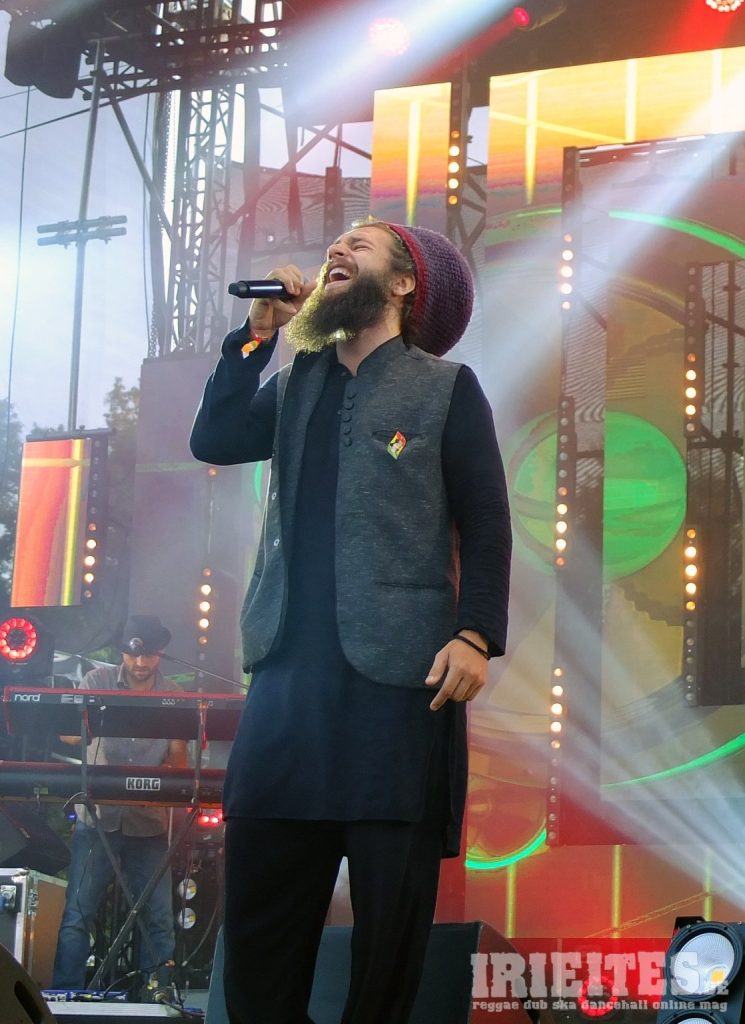
Interview 3: Mike Love
What do you think attracts people to your music?
I think it’s a connection. It’s definitely a family vibe that I figure brings people in. I see people connecting through it, so that’s really a huge part of my intention, to bring people together, so I think it’s that connection. There are all kinds of music in this world, and there are so many different approaches, you know… I think my approach, the reason why I’ve been working really hard at it, just as hard as anybody I know and probably harder than most people that I know, is to make this special kind of music. I’ve had a certain amount of success, and I have come to the realization that it’s not the kind of music that, at least in this time, is necessarily gonna be on a massive level. I think it appeals to a very certain and specific type of person, it’s not for the kind of person that just wants to, you know, not really think too much about anything, just have something very light and easy. My music is definitely intended to make you think, to make you feel very deeply, so I think that’s part of what attracts really that type of person that’s searching for something deeper, something that is gonna make them think, not only lyrically, but musically as well, just emotionally, energetically… I try and weave a lot of depth into every aspect of it, so I think that’s really what attracts people to it, that depth. It’s gonna attract a certain type of person and probably turn a certain type of person off, because somebody that’s not seeking that, right, is gonna go ‘Oh my God, that’s way too much and heavy for me… let me put on something else!’ (laughs)
Can you give us an example of what impact your music has on people?
You know, I think going back to what I just said, I do have countless examples of people who say things like ‘Your music changed my life!’ which is almost like a cliché saying, it’s a pretty old thing to say. I don’t know about you, but me as a musician, I love music, but I can count on one hand the artists that I could walk up to and say ‘Hey, your music changed my life!’ Bob Marley, Ben Harper, there is just a few, really a few specific moments I can think of where music hit me so deeply that it fully changed my life and I could state that. Also, I’ve had countless people tell me, ‘Your music saved my life! It came to me at a time when I didn’t know how to go on and I was thinking about committing suicide, and then I heard your song and it brought me back from the edge!’ Many times people told me ‘Oh, your music brought me out of a really dark time, it helped me through the time when I lost somebody!’ and that’s really what it is for me. So, these songs come to me and they saved me and they saved my life first (laughs), so it is that kind of music, right, that’s what it is for me and then I’m just sharing what I experience and people are taking that and apply it to their own experience.
Did you ever consciously develop that healing aspect of music?
Yes! Yeah, I mean, I still do. You know, I’m a student, I’m purely a student, I’m always learning, and I learn more and more about sound, about energy, about healing, all the time! I do very very consciously seek that out. I have and I will continue to, for sure, because I feel that’s the most high, the most perfect and most full iteration of music, this healing, you know, it’s an aspect I think that’s within all music. You could say that some music has a more impactful healing, and then there is music that may not be intended to be healing, maybe music that’s really angry music. There’s a lot of music like, you know, Death Metal and Punk Rock, music that’s intended to be angry. There’s a lot of anger and angst in HipHop, and this kind of music really heals people in a way that it gives them release, so even music that has a very what some people would consider negative vibration can be really positive in its release, you know. I think that aspect is in all music. And then of course you have music like mantra music, and its total intention is 100% healing, it’s a very different kind of approach, right, to for example what I do.
Would you describe your music as performative or as participatory?
I think it’s both, you know! It’s a performance, I mean, for one thing I will say that live music is the most powerfully healing form of music because it’s happening in the moment, right. You can record music, try and capture it, people will listen to the recording later and they will be healed by it, but being in the room, we feel it together! Being in the same room with a bunch of people, it’s not just me performing my music that’s creating the energy, it’s everybody! Everybody who is willing to put any kind of energy into it is participating in creating the music, I think, and that’s my intention when I walk on stage. From the first to the last note, it’s just about being open to healing, to all the energy of everyone present, and channeling that into the music and bringing people in, making them feel that they are a part of it, part of the creation of it… that’s the greatest thing about live music because you can open up to that. So, yeah, I think it’s a performance, but it’s a participatory performance, because we’re all really performing together. The more we can open up to being part of the whole as individuals through remembering that we’re part of the whole, the better it is, and that’s the beauty of music. It’s a group meditation, it brings people in and opens them up, and then they connect and we move on the same vibration, we move to the same groove and it reminds us that we are one spirit, that we are connected, we always have been and always will be.
I think the best concerts that I’ve ever been to as an audience member have been the ones that I felt the most like I was a part of it all. Not just like going and seeing, I mean, that’s amazing to see somebody perform and do something amazing, but if they are just really focused on themselves and not open to my energy and what I’m bringing, then I don’t go home thinking ‘Oh wow, I was a part of that!’
How would you describe your relationship with nature and how does this express in your music?
It’s everything! You know, I grew up in Hawai’I, and just growing up in a place where we were always in nature, we were always in the mountains or at the ocean, that’s what we did for fun, and I think that, as a kid growing up just I took it for granted. I didn’t really think about that some people don’t have this, they grow up in the city, they don’t have this just natural built-in connection to nature… I think that hugely has influenced who I am as a person and that comes into play in everything in my music. That connection, the nature, it contributes to my music being very grounding, in the same way that nature is. I think that’s a natural state, you know, we are born wanting to make music, wanting to be singers, wanting to dance and play and drum, it’s just built into our DNA! The same is true for wanting to just put our feet in the soil, to get in the ocean and catch waves, it’s just something that feels so natural, right? Part of the wickedness of the system is trying to cut people off from that and really coral them into cities, and it’s also metaphorically happening within music, you know. They are trying to control the music industry, trying to control the very music that’s being made, creating large corporate record labels and control most of the radio worldwide, control media and what music goes into TV shows and movies, and then in turn manufacturing music and artists to perform that music. It’s very low vibrational, right, so cutting people off from that creativity it’s the same as cutting people off from nature.
Do you think that music can play a role in promoting environmental awareness? If so, which?
Yes, absolutely, of course! I think it can play a role in promoting awareness of anything! I think the beauty of music is that you can say something that’s not easy to say in a beautiful way, and people will be more accepting to it. A great example: on my first album I have a song called Earthlings, it’s about animal cruelty, it’s about the meat and dairy industry. There’s a lot of ways to go about bringing awareness to the horrors of that industry, but most people will not be open to receiving that information because it’s very difficult, there’s a lot of guilt and a lot of shaming involved in that, you know. For me, I wrote a song about it, and it’s saying some very hard truths but in a very beautiful and poignant way. I’ve had a lot of people come to me and express feelings about that song, like ‘Wow, this song really brought awareness to me and I changed my path because of it!’ I think that’s a great example of how music is the best tool for that, for bringing awareness, for bringing environmental awareness, for making people wanna change, for making people open to accept change, to accept their part. It’s a hard thing to accept that we all play a part, that we all are very complicit in much of the destruction of our planet… we’re complicit in things like child slavery, war and all that, just by buying a pair of shoes or buying an iPhone, right. It’s hard to admit that to ourselves, to accept it and be willing to make even a small change, because we choose to be ignorant, we go about our day because it’s easier. Music can be that tool to remind people in a way that’s beautiful, but not necessarily keeping them in the dark, not necessarily just continuing to perpetuate that kind of self-induced ignorance. So, it’s a great way, it’s a great tool, the greatest tool actually. Music and art!
You said in the beginning that there’s a small circle of people who feel attracted to your music… The mainstream might never have the possibility to get in touch with that music or, as you said, they don’t want to because it’s too difficult, but can you imagine a way to pull more people into the circle, to make more people aware?
I think it’s really a kind of natural evolution, and it really comes down to the idea people have of you. If you are doing something that has a high vibration, you’re beaming out light, you’re beaming out positivity, you are really living it, you’re really walking it, you will be an inspiration to people around you. They are gonna see you, and whether they gonna realize it consciously or subconsciously, they’re gonna think ‘Wow, that looks amazing, I want that!’ I think the music is just gonna inspire people and ripple out. It’s all about timing, you know, we live in a world of balances and imbalances. Things are very out of balance now, but they are moving back towards balance, I think that’s why we’re seeing more and more artists digging deeper into these ideas and more people willing and open to receiving them and being a part of it, being a part of that movement. People always say to me, “Wow, I wish more people knew about you, I wish more people were at your show!” and I say, “Well, you know, everybody that’s here, everybody that’s received this music, that’s found it, are who was meant to have found it and to be here and to experience it.” That’s all I can do, all that’s in my power to do and to control, and I’m absolutely over the moon grateful for it, grateful for anybody who gives me that reflection, who gives me that support, who keeps me going and makes me wanna work harder and do it stronger and better and continue.
For the article I told you about, I chose to analyze Step Lightly, really a very emotional call to action. Can you tell us how you conceived that song?
It was when I was hiking in Manoa valley in Oahu, a beautiful hike on the island that’s the ancestral lands of Queen Ka’ahumanu, a very sacred place. Growing up, my family would go there often, and we would go and hike to the waterfalls there in Manua valley, and there’s a beautiful botanical garden, too. I went back as an adult, after I hadn’t been there for a few years, and I brought my family there and my kids. When we went there this time, they had done all of this renovation, and for the first time ever they were charging money to use the parking lot, and it was like it had become… it was always a very popular spot, but it had become a very tourist kind of destination. They had paved all the trails, and it was just like… you know, it felt like desecration to me. There was a bunch of trash everywhere and stuff, and when you create situations like that, especially in America and definitely in a lot of places like that, it’s just a lack of respect, a lack of awareness for the sacred nature of a place like that and the beauty of a place like that. All those lyrics kind of started pouring out as I hiked that trail to the waterfall with my family.
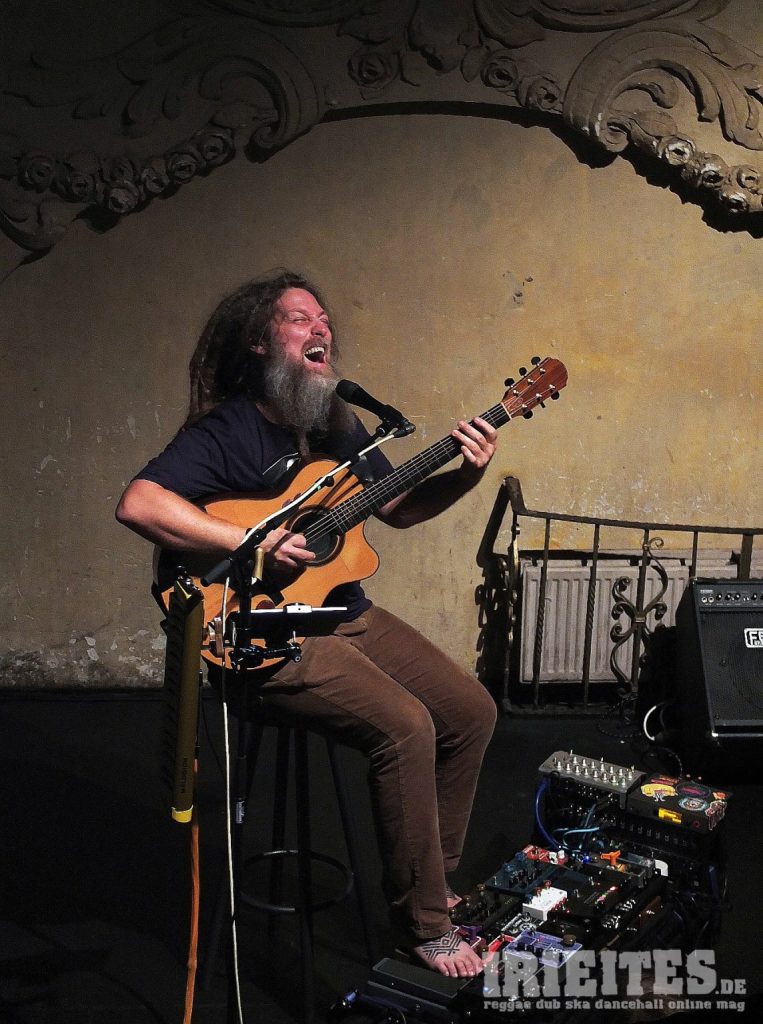
Interview 4: Sam Garrett
What do you think attracts people to your music? Why do they follow you, why do they come to your concerts?
I think we are all seeking connection, seeking for peace and harmony and clarity. I think that in our society, we’ve been conditioned to believe that this comes through money, success, family, a car and a house, to be a success in the eyes of the world, in the eyes of your parents, to be a successful human being or a good citizen. And I think it doesn’t work, it doesn’t make you happy, I’ve seen that in my own life, in my own family, and what I found is that we are really seeking this unity, this connection, firstly to ourselves and to God, and then to one another and to nature and the world around us. I think it’s all connected actually, I don’t think there is anyone that’s more or less. I think we are truly seeking connection, and that’s why people come, and for me it’s such a joy to get to just sing and share these songs with everyone, because it’s not a performance about me, it’s not about me performing. It’s about us, it’s about we, it’s about this human family remembering what’s really important in this life.
What impact does your music have on people? Can you give some examples of what fans have told you?
Many, many things! A lot of people come and they cry because… a lot of people say they feel a sense of belonging, a sense of being home. Whereas in the world they feel like outcast or they don’t feel they can belong, because it’s an expectation of how they have to be, when they come to this space, there’s no expectation on them. You can come as ever you are and it’s welcome and it’s perfect, because really the reminder is that we are all a unique expression of consciousness of God, of life, and it’s beautiful. We are going beyond this shame, this guilt, this trying to fit ourselves into boxes, and just to be ourselves is a great liberation, so… people say many things, I’ve had somebody even tell me that the only thing that stopped them from committing suicide was my songs. And they said, “Please never stop!”, so I said, “How can I now? I have to keep singing!”
That’s deep. Would you consider your music as a kind of community music?
Yes. World music! It’s like really transcending all these borders and barriers of race and religion and identities that we have created or the world has created. And it’s really about dis-identifying from all of these ideas and things and just coming back to that root, coming back to that core, that purity of spirit, that purity of heart which dwells inside each and every one of us.
How do you think that this got lost? Many indigenous people or traditional ethnic groups have music as a combining force, but we in our Western, so-called civilized world, it somehow got lost. Yes, we have the radio and pop-songs and stars, but we don’t have this togetherness that you are describing, this singing together. I mean, there are choirs, but it’s not an element of everyday life, and it’s not everyone who does it. How have we lost that and how can we get it back?
I think we lost it through ego, because we disconnected ourselves from life. We became the center of the universe and we became more important than nature and tradition. These songs hold so much power, when you listen to indigenous songs, there is so much wisdom and so much beauty and so much prayer, and I think that somehow through our evolution we began to think that we are more than or higher than that, and then somehow it got lost. This is the way of the Babylon system, we got kind of lost through that. But now we are coming back, there is a yearning again to return to this source, to return to our true nature, to return to that space where we are connected again with God and with life and nature.
Did you consciously develop this healing aspect of music on your journey?
It came to me naturally! I never really have any intention, I don’t have this idea of, like, I want it to be like this. I just let it come, whatever comes it comes, and then people tell me, “Wow your music is really healing!” but I don’t know that, I just sing. I don’t really have an understanding of what the effect is going to be, I just trust that it feels good in my heart, so I just express myself, whatever comes naturally. And then from that place people will say that it’s really healing, but for me, I’m really just singing from my heart.
The positive effect music has, is it because it distracts people momentarily from their worries, from their everyday lives, or is it really changing something in their mindset?
Not even a mindset, because the mindset can change, you can have a positive mindset or a negative mindset, which are both two sides of the same coin. For me, we are going beyond the mind and into the heart where there is no distracting there. Actually, in our everyday life we are distracting with social media, with alcohol, with drugs, with television, with so many things… this music is a reminder, a calling back to our true selves, where there is no fear, no doubts, no sorrow there, there is only joy and peace and wisdom and love and deep connection to life, so I feel it’s not a distraction, but really a returning to our truest essence.
The people that come here and listen to you, they kind of already are in the circle, they heard the calling. I always wonder how we can reach people who are not in the circle yet, who never heard this kind of music, who never felt this deep connection. How can we reach them?
You can’t force it! Because every time I have tried to tell someone in my family that I want them to receive what I feel, it doesn’t work, they just react and say, “No, I don’t want that, leave me alone!” It’s not like that, it’s like when the apple is ripe it falls from the tree, when you try to pick it before, it’s too hard, you can’t eat it. So each human being is like this, everyone has their time to come into this understanding, you can’t force it. And everything has its place also! There was one time where I didn’t live like this, I wasn’t aware of this, I was just living in my own mind and projections and desires and fears, and somebody could have looked at me then and said, “Hey, you could be here!” but, actually, I couldn’t be there, I had to be where I was! So, everyone has that place, and everything is ok and everything is unfolding according to its own timing. We can’t force it, all we can do is do what we can do, so for me all I can do is sing. That’s what I do, and if people come, then I give thanks for that, if people don’t feel to come, I also give thanks, it’s ok, I’m not gonna force it. Because I’ve seen sometimes with screaming and shouting and forcing, it can have just the opposite effect, it can just make more violence and anger, and I really think that to bring peace and unity we must be in peace and live in harmony in our self. And then the ones who are open and feel drawn and resonate with that they will come (laughs).
Your album covers always depict plants, rivers, mountains, sun, it’s always a very deep connection with nature. What is your relationship with nature?
In a sense, I feel like we are nature, you know, but somehow we live in this modern technological world which is getting very strange and crazy very quickly, with AI technology and all these things. I think, for me growing up, I grew up in nature, I grew up in the countryside where I was surrounded by birds and rabbits and trees and rivers and streams and lakes, and these things for me were just part of my everyday existence, part of my reality. It’s only when I moved to London that I started to see how far we’ve become removed from nature. I feel in a way it’s like if I can share something with my music, it’s to share this reverence, this respect and honor for nature because we all came from nature and we all must return to nature. So, while we are here and especially in this time now, you know, when technology and all these things are happening and everything is evolving in such a rapid rate, I wonder what can we do about it? We can’t really stop it, but what we can do is remember again our roots, remember where we come from. Everything comes from mother earth, and in every ancient tradition and culture they have a deep respect and reverence for the earth, for the plants and everything, the sun, the moon, the stars, everything is revered as sacred, and I think that was somehow lost in our Western culture. So, I feel like it’s important for me to express how beautiful and magical and sacred nature is, because I think we forget that. Somehow in my artwork and these things, it’s a representation of this fact that we are all part of nature and in some way we have to return back to this respect and reverence for mother earth if we are to have a chance of survival!
Thank you so much for the input, that’s beautiful!
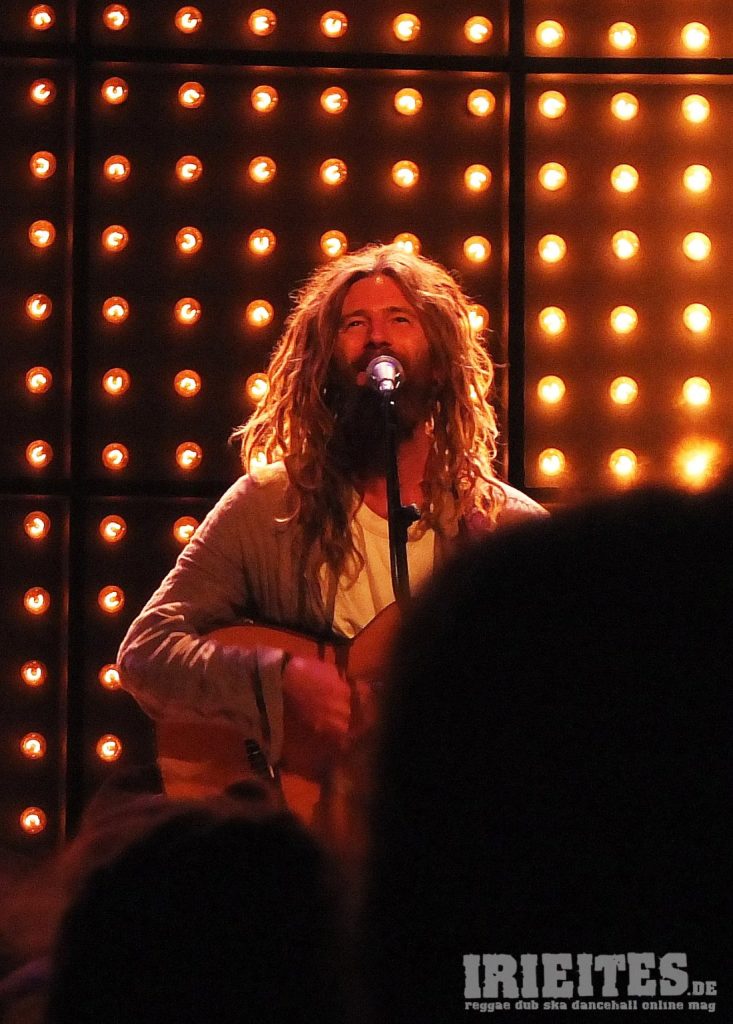
Text & Photos: Gardy Stein
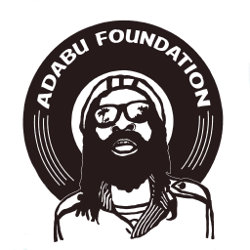
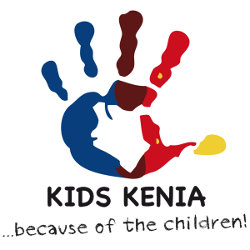
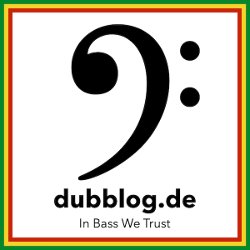

Leave a Reply